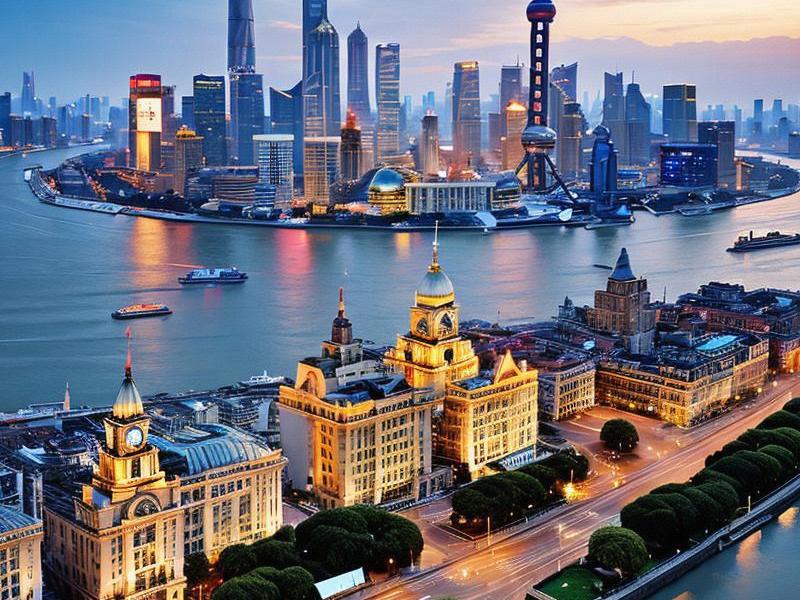
Shanghai, as the economic center of China, has always been at the forefront of the country's reform and opening up. Over the years, Shanghai has not only achieved remarkable results in economic development but also played a pivotal role in promoting regional integration and development. The surrounding areas of Shanghai, including Jiangsu, Zhejiang, and Anhui provinces, have also benefited from this development momentum, forming a unique regional economic circle.
In recent years, Shanghai and its surrounding areas have made significant progress in regional integration and development. The implementation of the Yangtze River Delta Regional Integration Development Strategy has further accelerated this process. This strategy aims to promote the coordinated development of the Yangtze River Delta region, enhance its overall competitiveness, and build it into a world-class city cluster.
One of the key achievements of regional integration is the strengthening of economic cooperation. Shanghai, with its advanced financial, trade, and shipping services, has become the core engine of regional economic growth. Meanwhile, the surrounding areas have leveraged their respective advantages, such as manufacturing, agriculture, and tourism, to form a complementary industrial chain. This has not only enhanced the overall competitiveness of the region but also promoted the rational allocation of resources.
In addition to economic cooperation, Shanghai and its surrounding areas have also made significant strides in urban construction and infrastructure development. The construction of high-speed railways, highways, and urban rail transit systems has greatly improved the connectivity within the region. This has facilitated the movement of people, goods, and information, further enhancing the region's economic vitality.
上海龙凤419手机 Cultural heritage protection is another important aspect of regional development. Shanghai and its surrounding areas are home to a rich array of historical and cultural resources. In recent years, these regions have taken measures to protect and inherit these cultural heritages, ensuring that they can be passed down to future generations. At the same time, they have also integrated cultural elements into urban construction and tourism development, creating unique cultural landscapes that attract visitors from all over the world.
However, despite the many achievements, Shanghai and its surrounding areas still face some challenges in regional integration and development. One of the main challenges is the imbalance in regional development. Although Shanghai has developed rapidly, some areas in the surrounding provinces still lag behind in terms of economic development and infrastructure construction. This has led to disparities in living standards and opportunities among different regions, which is not conducive to the overall development of the region.
To address this issue, it is necessary to further strengthen regional cooperation and coordination. Shanghai should play a leading role in promoting regional integration, sharing its resources and experiences with surrounding areas. At the same time, surrounding provinces should also actively participate in regional cooperation, leveraging their respective advantages to achieve common development.
上海品茶网 Another challenge is environmental protection and sustainable development. With rapid economic growth, environmental issues have become increasingly prominent in Shanghai and its surrounding areas. Air pollution, water pollution, and solid waste pollution have all had a negative impact on people's lives and health. Therefore, it is crucial to strengthen environmental protection work and promote green development.
In response to environmental challenges, Shanghai and its surrounding areas have taken a series of measures. For example, they have implemented strict environmental protection regulations, promoted clean production and energy conservation, and increased investment in environmental protection infrastructure. These efforts have effectively improved the environmental quality in the region and laid a solid foundation for sustainable development.
In addition to economic and environmental challenges, Shanghai and its surrounding areas also face challenges in talent cultivation and attraction. As a global city, Shanghai needs a large number of high-quality talents to support its economic and social development. However, due to factors such as high living costs and intense competition, attracting and retaining talents has become a significant challenge.
上海品茶论坛 To address this issue, it is necessary to improve the talent cultivation and attraction mechanism. Shanghai and its surrounding areas should strengthen cooperation in education and training, jointly cultivate high-quality talents that meet the needs of regional development. At the same time, they should also improve the talent attraction policy, providing better living and working conditions to attract more outstanding talents to the region.
Looking ahead, the future development of Shanghai and its surrounding areas will be full of opportunities and challenges. With the continuous advancement of the Yangtze River Delta Regional Integration Development Strategy, these regions will further enhance their overall competitiveness and influence. At the same time, they will also face new challenges such as globalization, technological innovation, and population aging.
To seize opportunities and meet challenges, Shanghai and its surrounding areas need to continue deepening reform and opening up, enhancing their innovation capabilities and competitiveness. They should also strengthen cooperation and coordination, jointly promote regional integration and development, and build a more prosperous, harmonious, and beautiful Yangtze River Delta region.
In conclusion, Shanghai and its surrounding areas have made remarkable achievements in regional integration and development, but they still face some challenges. By addressing these challenges and seizing opportunities, these regions will be able to achieve higher-quality development and build a more prosperous future for their people.
